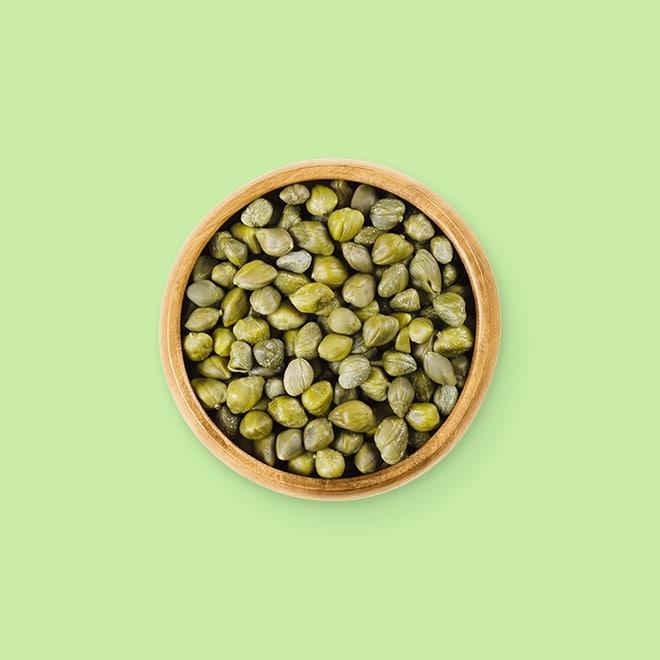Caper




Mostly found in Mediterranean dishes, capers are salty, briny dark green buds. In fact, they are actually flower buds that have been sun dried and pickled. The mature fruit of a caper shrub is called a caper berry. Caper berries are prepared in the same way, so they can be substituted for normal capers.
Capers are a key ingredient in tartar sauce, and often served with salmon, especially cured or smoked. If you’re in a pinch, they can also be substituted for olives as a martini garnish.
The smaller the capers are the more desired they are in the market. Capers are therefore categorized by their diameter, the smallest category is called non-pareil (up to 7mm). Then there are capucines (8-9mm), capotes (9-11mm) and fines (11-13mm). The biggest category of capers are called grusas and are bigger than 14mm.
You can find them in bottles near olives or pickles at the store. They’re normally packed in brine. Just remember to refrigerate them after you open!
Capers can be used for anything! Season your chicken, seafood, or even breadcrumbs with these salty buds.
Capers contain rutin. Rutin is known for benefiting blood vessels, circulation, and reducing cholesterol levels.
Capers are also high in calcium, iron, and copper.
Corrections or improvements? Email us at
content@sidechef.com